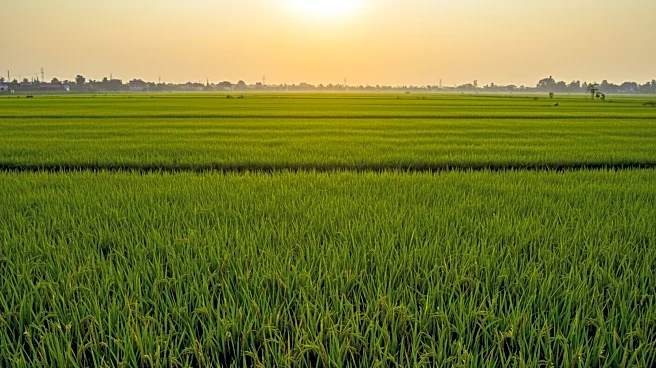What's Happening?
A private Vietnamese company, Agri VAM, has started cultivating rice in Cuba to address the country's severe food shortages. The Cuban government has granted Agri VAM 1,000 hectares of land in Los Palacios, marking the first time a private firm has directly farmed Cuban land. This initiative follows a significant decline in Cuba's agricultural production, which saw a 52% drop between 2018 and 2023. Rice production, a staple in the Cuban diet, fell drastically during the COVID pandemic but is slowly recovering. Agri VAM's current yield is seven tons per hectare, significantly higher than local Cuban growers. However, the company faces challenges such as fuel shortages and frozen assets, impacting its operations.
Why It's Important?
Cuba is experiencing an acute economic crisis, making foreign investment crucial for its recovery. The involvement of Agri VAM highlights the potential for international partnerships to alleviate food shortages and stimulate economic growth. Vietnam's experience in overcoming similar challenges in the 1980s positions it as a valuable ally. The Cuban government's approval of wholly foreign-owned companies in sectors like hotels indicates a broader strategy to attract foreign investment. This development could pave the way for more international collaborations, potentially boosting Cuba's agricultural output and economic stability.
What's Next?
Cuban Prime Minister Manuel Marrero Cruz has announced measures to energize foreign investment, which may lead to more opportunities for international companies like Agri VAM. The Cuban government is expected to address investment barriers, as highlighted by Vietnam's deputy agriculture minister. Additionally, Russia has expressed interest in investing $1 billion in Cuba, which could further enhance foreign investment prospects. These steps may help Cuba overcome its economic challenges and improve its agricultural productivity.











